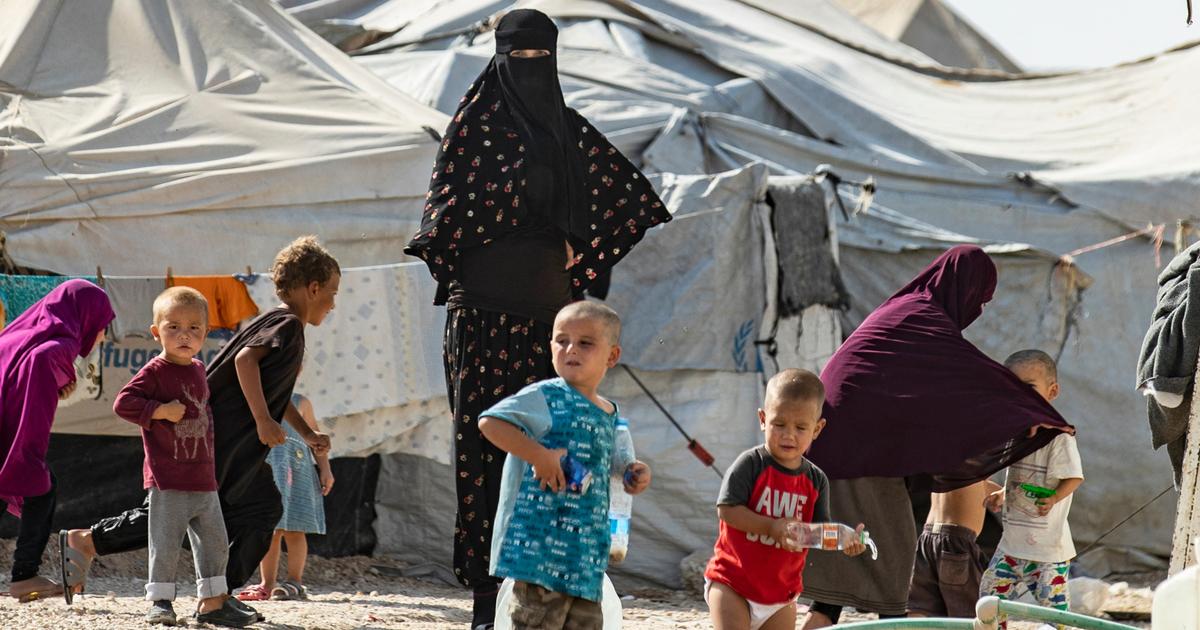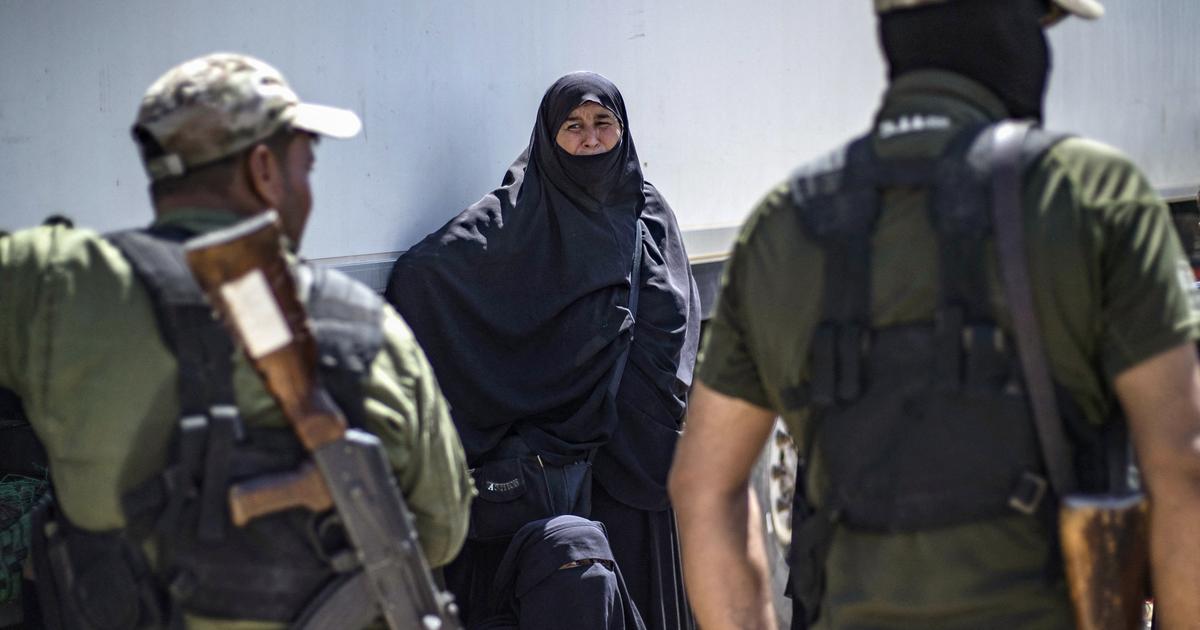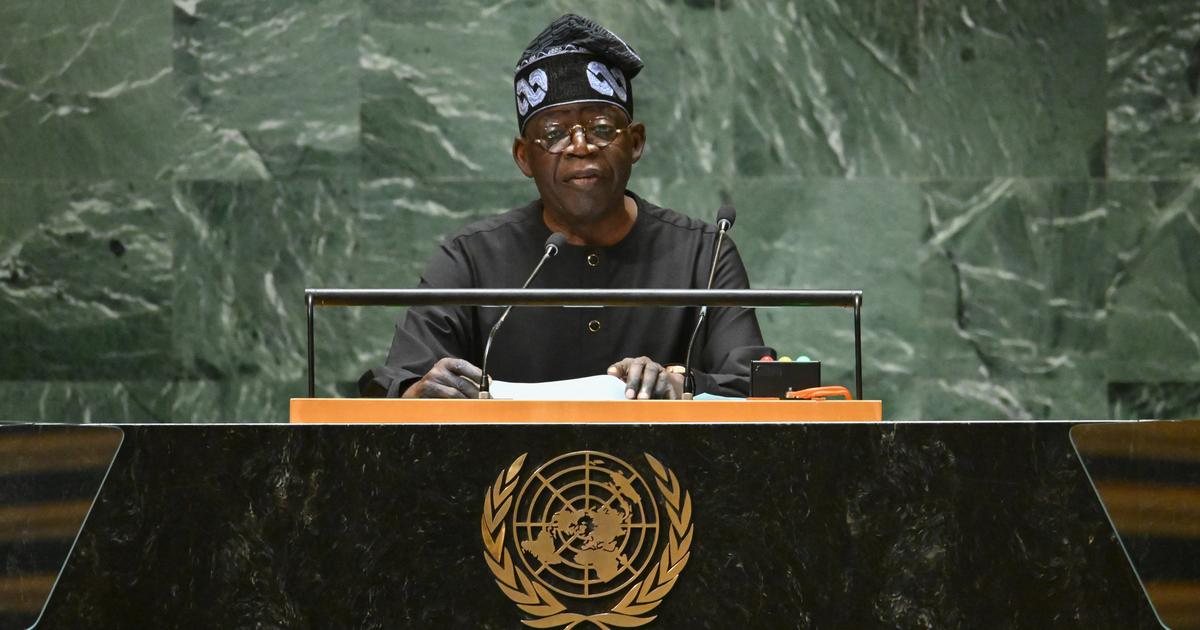A third major repatriation in six months.
Tuesday, January 23, the Ministry of Foreign Affairs announced the arrival on French soil of 15 women and 32 children detained in jihadist prison camps.
On July 5, France had already repatriated 16 mothers and 35 minors, then 15 women and 40 children in October.
A total of 300 French minors who have stayed in areas where terrorist groups operate have already returned to France, including 77 by repatriation, the Minister of Justice Éric Dupond-Moretti indicated in early October during a hearing before the Senate.
But what happens to these women and children when they set foot on their native land?
Frequent changes of prison to avoid the radicalization of prisoners
Planes land either at Villacoublay air base (Yvelines) or at Roissy airport (Seine-Saint-Denis).
The mothers are immediately separated from their children and “
handed over to the competent judicial authorities
”.
Concretely, there are two scenarios, as explained last July by Laurent Nuñez, then coordinator of intelligence and the fight against terrorism: "
They are either the subject of a search warrant, or of a stop
”.
The first go into police custody, then into detention.
The seconds in detention directly.
To read alsoThese “returnees” of the jihad that France repatriates without noise
In prison, wives of jihadists are first placed in specific wards to be assessed.
In principle, they then go to a conventional cell.
"
But they change prisons frequently to avoid radicalizing the other detainees
", confides a source accustomed to this type of file.
It is moreover to avoid this kind of risk that the Radicalization Support District (QPR) of the Rennes prison (Ille-et-Vilaine) was recently created, which accommodates women convicted of acts of Islamist terrorism.
Placement in an emergency reception service
For their children, the course is much more tortuous.
Because they "
were able to witness abuses and we can assume that all of these minors, whatever their age, evolved in a climate of extreme violence
", underlines a circular from Matignon, dated February 2018. As soon as they arrive on French soil, the Paris prosecutor's office, which centralizes the first information, checks the existence of an educational assistance procedure with the last known residence.
Read alsoThe State is accelerating repatriations from Syria
All the information relating to the family situation (civil status of the parents, contact details of the extended family, etc.) is then communicated to the juvenile prosecutor's office of the place of arrival of the child (Yvelines or Seine-Saint-Denis, depending on the airport of arrival) and to the county council.
The public prosecutor of the place of arrival then has the option of issuing an emergency provisional placement order (OPP), which will allow the minor to be entrusted to a child welfare service (ASE) local.
After a complete medical examination, the child is therefore taken directly from the airport to his place of temporary placement.
"
This is an emergency reception service while waiting to find out if the minor can go to a family
", explains a social worker, who takes care of minors "
returning from the area
".
Namely establishments, family placement services or with voluntary and trained family assistants for the reception of children returning from areas of terrorist operations.
Judicial measures entrusted to the PJJ
In the meantime, the competent public prosecutor's office immediately seizes the juvenile judge.
The latter may establish a ban on leaving the territory of the minor and will generally order a judicial measure of educational investigation (MJIE), entrusted to the services of the Judicial Protection of Youth (PJJ).
“
It is a six-month social survey conducted by a team of three professionals (an educator, a psychologist, a social worker), dedicated to assessing the situation of the minor and his family
, details the social worker questioned.
It makes it possible to detect any dangers and shortcomings both in the child and in those who request placement in their home to inform the judge.
".
An educational action measure in an open environment (AEMO) can then be entrusted to the PJJ, so that the child is supported over the long term.
Read also“Repatriation of the companions of jihadists: the extravagant decision of the ECHR deciphered”
Once the MJIE has come to an end, the child can be entrusted to his extended family, generally his grandparents, after several “
mediatized
” visits, in the presence of a referent from the ASE and an educator.
“
But the placement is often a source of conflict between the paternal and maternal family, who each want to receive their little child at home
, confides our source.
The father is usually presumed dead and the mother in prison, so the child is the only link they have left
”.
Visits to the jihadist parent imprisoned in France are strictly supervised by the judge, who will give authorization or not depending on the age of the child, the type of proceedings initiated against the parent and the relationships they have.
If authorized, the minor may visit his mother (or more rarely his father), accompanied by a PJJ educator.









